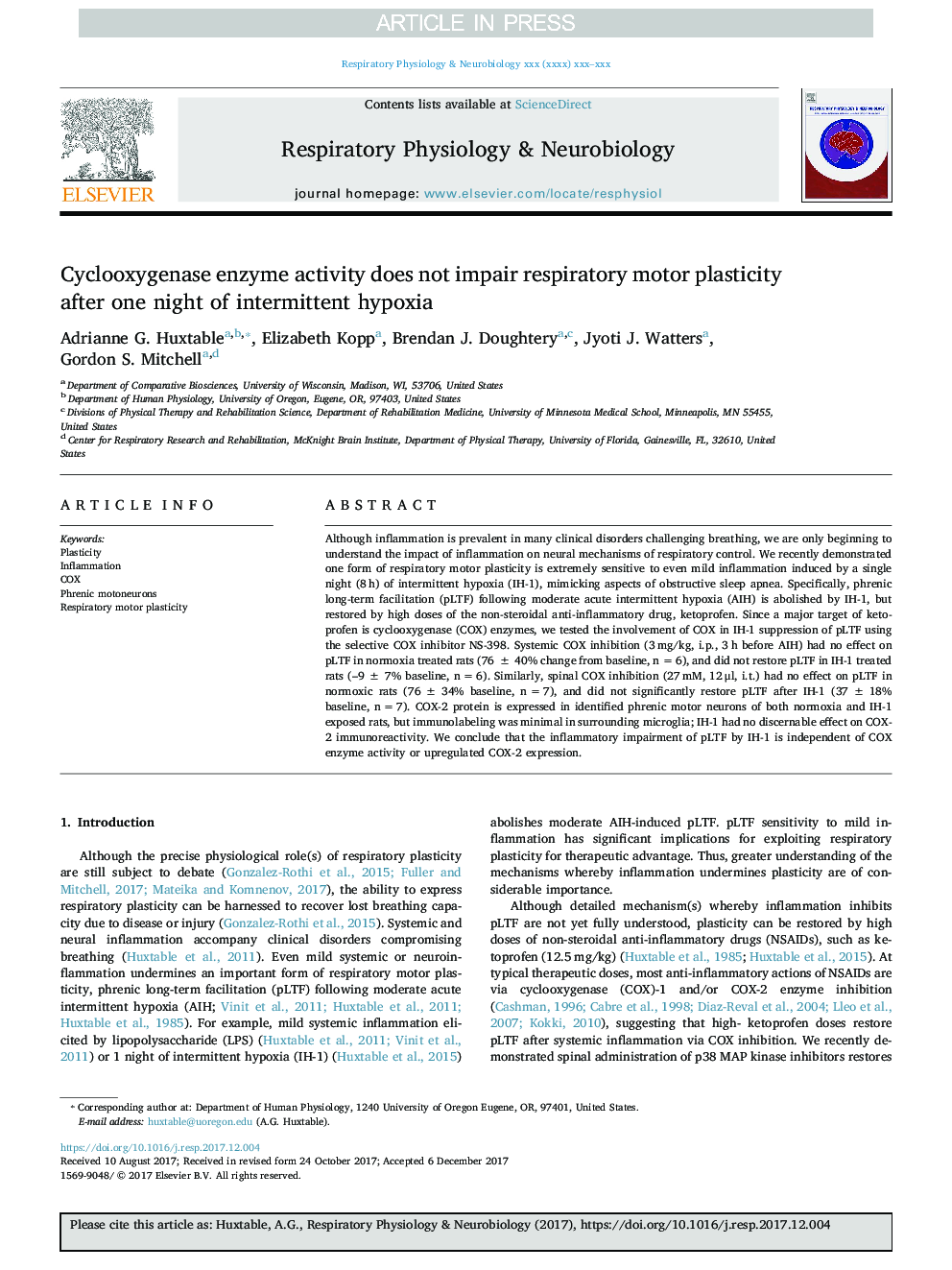| Article ID | Journal | Published Year | Pages | File Type |
|---|---|---|---|---|
| 8951018 | Respiratory Physiology & Neurobiology | 2018 | 8 Pages |
Abstract
Although inflammation is prevalent in many clinical disorders challenging breathing, we are only beginning to understand the impact of inflammation on neural mechanisms of respiratory control. We recently demonstrated one form of respiratory motor plasticity is extremely sensitive to even mild inflammation induced by a single night (8â¯h) of intermittent hypoxia (IH-1), mimicking aspects of obstructive sleep apnea. Specifically, phrenic long-term facilitation (pLTF) following moderate acute intermittent hypoxia (AIH) is abolished by IH-1, but restored by high doses of the non-steroidal anti-inflammatory drug, ketoprofen. Since a major target of ketoprofen is cyclooxygenase (COX) enzymes, we tested the involvement of COX in IH-1 suppression of pLTF using the selective COX inhibitor NS-398. Systemic COX inhibition (3â¯mg/kg, i.p., 3â¯h before AIH) had no effect on pLTF in normoxia treated rats (76â¯Â±â¯40% change from baseline, nâ¯=â¯6), and did not restore pLTF in IH-1 treated rats (-9â¯Â±â¯7% baseline, nâ¯=â¯6). Similarly, spinal COX inhibition (27â¯mM, 12â¯Î¼l, i.t.) had no effect on pLTF in normoxic rats (76â¯Â±â¯34% baseline, nâ¯=â¯7), and did not significantly restore pLTF after IH-1 (37â¯Â±â¯18% baseline, nâ¯=â¯7). COX-2 protein is expressed in identified phrenic motor neurons of both normoxia and IH-1 exposed rats, but immunolabeling was minimal in surrounding microglia; IH-1 had no discernable effect on COX-2 immunoreactivity. We conclude that the inflammatory impairment of pLTF by IH-1 is independent of COX enzyme activity or upregulated COX-2 expression.
Related Topics
Life Sciences
Biochemistry, Genetics and Molecular Biology
Physiology
Authors
Adrianne G. Huxtable, Elizabeth Kopp, Brendan J. Dougherty, Jyoti J. Watters, Gordon S. Mitchell,
